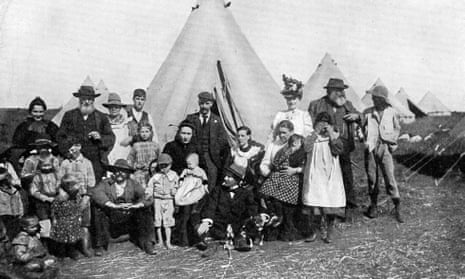At the outbreak of the war, Emily Hobhouse became an outspoken critic of British foreign policy. The South African war, also called the Second Boer war, of 1899-1902 broke out after Britain rejected the Transvaal ultimatum which demanded that all disputes between the two states - Britain and the two Boer republics: Transvaal and Orange Free State - be settled by arbitration. The ultimatum also required British troops to stop building their forces in the region, and to withdraw from borders.
Sister of Leanord Hobhouse, a social philosopher, Emily travelled in 1895 to the United States to carry out welfare work amongst Cornish miners and their families who migrated to America and had fallen on hard times. A year after returning to England in 1898, Hobhouse was invited to become secretary for the women’s branch of the South African Conciliation Committee and subsequently received information on how women and children were suffering as a result of British military operations.
Hobhouse arrived in Capetown in December 1900 with the intention of distributing supplies, and then travelled to a number of camps across the region after learning of their existence. While there, she witnessed the true scale of damage and destruction that she felt could only be rectified through sustained campaigning and reporting of the issue to put pressure on the home government.
In the following correspondence published by the Manchester Guardian, Hobhouse describes the effect of the war on families living in internment camps:
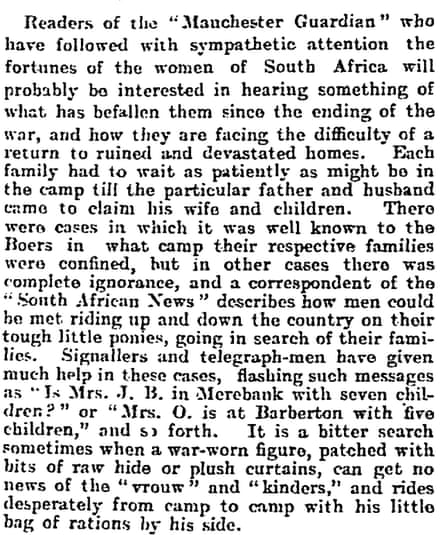
Homecoming of the Boers: extracts from their correspondence
She wrote a number of letters to the Guardian during her travels - documenting the treatment and conditions - bringing to light the camps and military tactics used against the Boer which were the cause of the dire conditions and misery. Many of these articles included testimonies from Boers and the suffering they faced.
In one letter, a Boer man wrote about difficulties his family faced and their fears of leaving the camp:
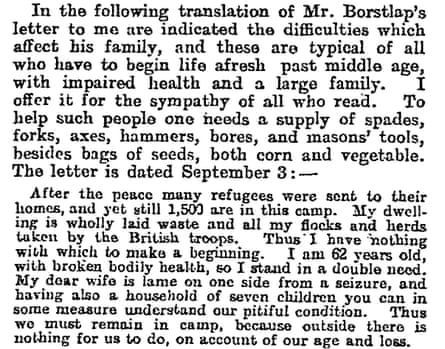
Homecoming of the Boers: more extracts from their letters
In another, Hobhouse revealed the lack of supplies the Boers were receiving:
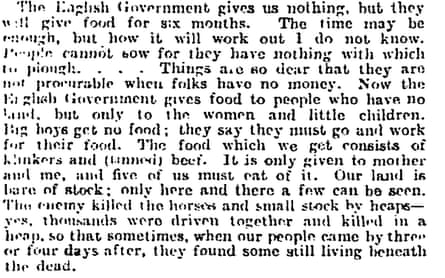
Homecoming of the Boers: sad tales told by themselves
Hobhouse eventually returned to Britain, motivated to raise issues with the government - she gave parliament a new perspective on the war and camps and turned the issue into a national scandal. This subsequently forced parliament to officially investigate the matter, despite the criticism and hostility that she received.
She travelled back to South Africa in 1903 to set up home industries that would provide rehabilitation for Boer families affected by the war. Hobhouse spent the next five years there shaping education of women and girls, and sent appeals to the British public for funds to train people and extend the work she had already established:
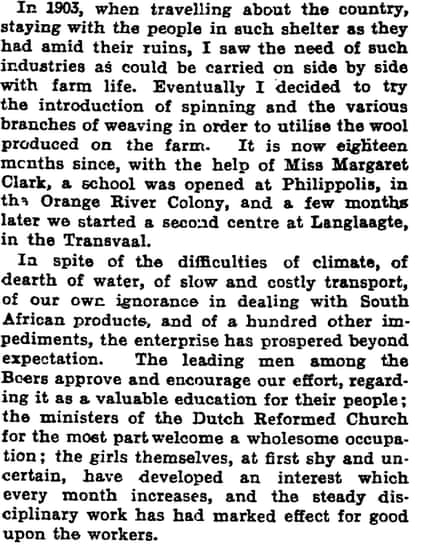
Hobhouse died in London in 1926 and her ashes were spread at the National Women’s Monument in Bloemfontein.
Further reading
Black victims in a white man’s war
Archive: a tale of the Boer war
